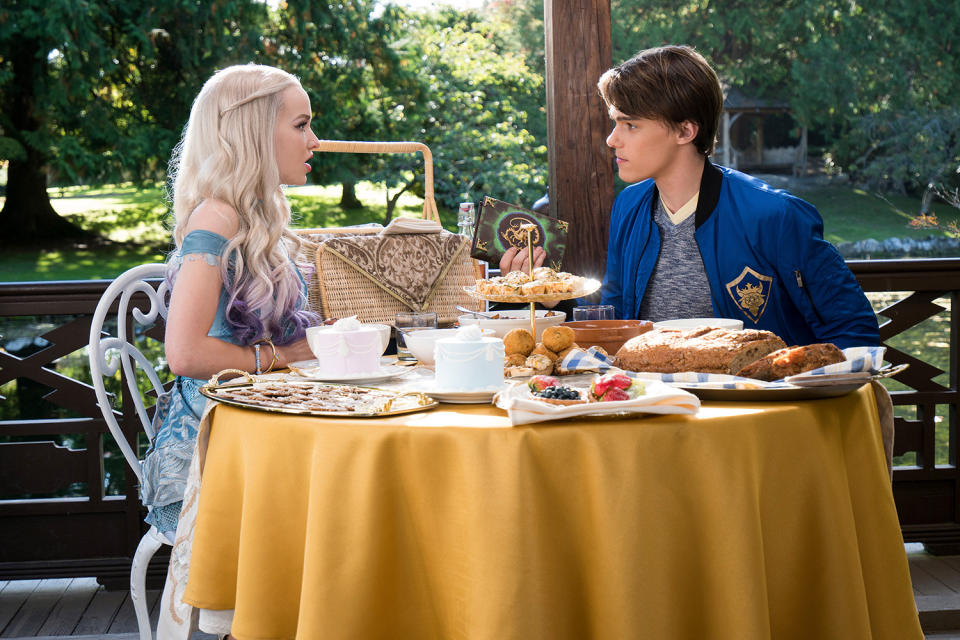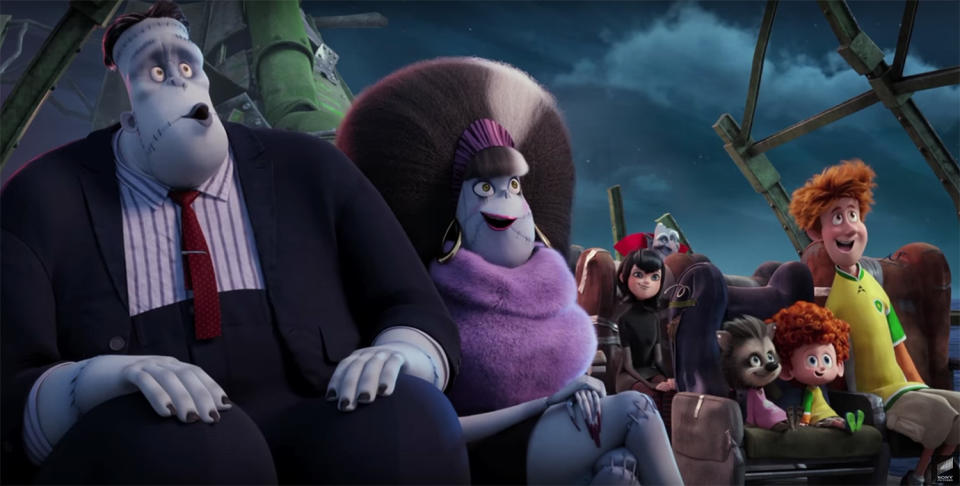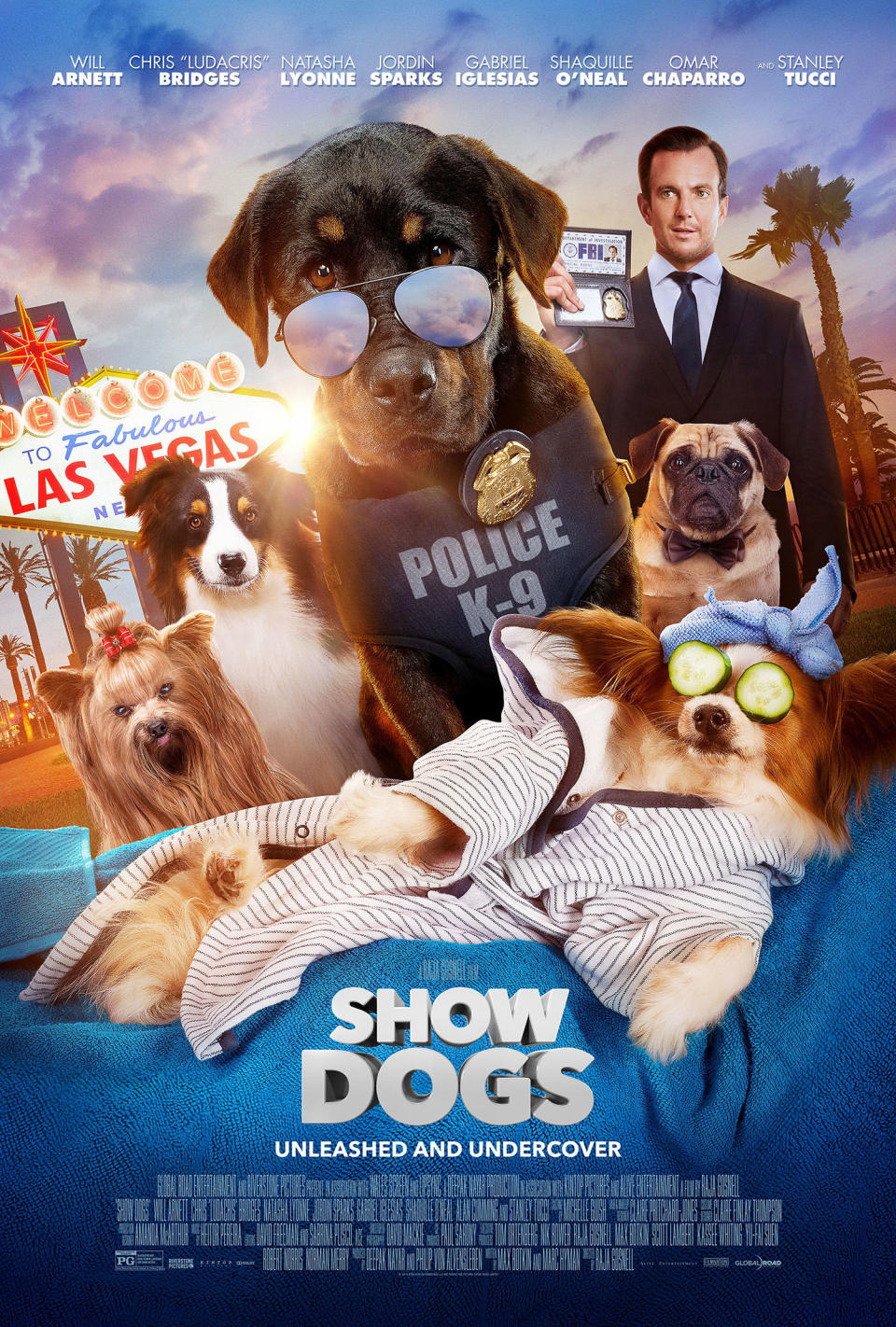Kids' movies are relentlessly romantic — and that's harming our girls

Recently, my children began lobbying to watch a movie called Descendants. They’d heard about it at their after-school program, where the soundtrack blared — “Did I mention that I’m in love with you?” — as the kids shot baskets and acted out the parts on the playground.
I read up on it, quickly realizing I had a lot of catching up to do (Descendants 2 left fans hanging in 2017, and Descendants 3 was announced just recently with the exciting release of a trailer ). It sounded like a clever enough idea: The children of various Disney villains — Belle’s adversary, Maleficent, and Snow White’s nemesis, the Evil Queen, among them — go to an exclusive boarding school with the children of the royals on whom those villains have preyed (and, at first, conspire to take it over and let evil reign).
Now, I’m pretty well prepared to combat the princess media. I have had discussions with my daughters, 6 and 8, about the limits of those royalty-rooted narratives, in which huge-eyed, tiny-waisted young women — wealthy, beautiful, yet somehow powerless — must be rescued by men. I knew, also, to teach them to recognize the whiteness of those worlds, and how heteronormative they were, with almost all straight and cisgendered characters.
But I was not prepared for one consistent element of children’s media — something on full display in the endless stream of kids’ movies, from the Descendants franchise to the soon-to-be-released summer attractions Incredibles 2, Show Dogs, and Transylvania 3: Summer Vacation.
And that, my friends, was romance.

Much of Descendants, for example, centers on the budding love between Maleficent’s daughter Mal and Sleeping Beauty’s son Ben — he even asks, “Do you love me?” on the first date. (Granted, he’d been chowing on some love potion-laden chocolate chip cookies, but make no mistake, his love is real.)
To paraphrase my daughters when they see starry-eyed young boys and girls on the small or big screen about to kiss: Ewww.
Boy-meets-girl is as old a narrative device as, say, Adam and Eve. Romance novels are a billion-dollar industry. Romance-fueled narratives are everywhere, but I have found myself increasingly agitated and confounded by their presence and prevalence in kids’ media.
Still, I couldn’t quite put my finger on why, so I called a couple of experts to unpack it with me.
Separate, unequal storylines
The biggest problem with romance in kids’ media, says Sierra Filucci, executive editor of parenting content at Common Sense Media, a nonprofit that reviews children’s media and technology, is that it is largely found in films and shows targeted at girls.
“If a female is the central character, most often there is a romantic storyline,” Filucci says. Boy-oriented stories are full of action and adventure, of agency and independence. Girl-oriented stories are full of angsty ladies hoping to win the favor of boys, by way of primping and preening and passivity.

The search for a man’s affection or approval, says Rebecca Hains, a children’s media culture expert and professor of media and communication at Salem State University, is presented as “the be-all and end-all of life.” All the other things we want for our girls — mostly to have that action, adventure, agency, and independence that boys have — take a back seat to the pursuit of romance.
“If the only story that is consistently being delivered to girls is that romance is wonderful and you should pursue it and make yourself appealing so you can have a heteronormative romance, well, what about all the parts of life that are very interesting?” asks Hains. “There are so many aspects of life besides romance.”
It happens early and often, she says, that we essentially sell boys and girls on two different worlds, laying out gender-based norms that have very little rooting in reality. “In general, boys and girls have so much more in common,” Hains says. But our media “reinforces the idea that boys and girls are different and sets children on pathways to imagine that there are many more differences than similarities.”
These kinds of messages can affect the way they think about themselves and the way they think about others.

Mixed media messages
Hains notes that these messages don’t just get filtered into our kids’ brains — they can help shape behavior, lifelong beliefs, and even public policy.
“What we come to believe is the natural normal order of things as children shapes our worldviews, and might have more influence on what we advocate for as adults,” she says.
Boys, for instance, may learn that they’re not supposed to crave love and affection the way girls “should.” “We have the idea that masculinity is not compatible with nurturing,” she says, which, one could argue, affects both our cultural attitudes toward and our laws about things like paternity leave. Noting the number of hands-on dads, she says, “It’s so out of step with modern life.”
Meanwhile, women are still expected to place men and family first, no matter what they achieve — emotional labor always takes precedence. “Even if you have a great job and you’re a scientist who invents robots, if you’re a woman you’re going to be responsible for all these other things,” Hains says. “If you’re a great scientist but not a great mom, there’s something wrong with you.”
This doesn’t mean you need to filter out all romantic storylines. “It’s impossible to put children in a bubble where they don’t see all those stories,” says Filucci. “I don’t think cutting them off from what their friends are experiencing is effective, because it can become this forbidden fruit.”
Certainly that was the case for this writer. The ban on soap operas in my house growing up — precisely because my parents objected to how they promulgated the notion that “love justifies everything” — only led to me sneaking General Hospital and surrendering my allowance to my older brother so he wouldn’t tell.
Instead, have a healthy media mix. “It’s not bad to show your kid a story that has some romance in it, but it’s important to balance that with other stuff. Counterbalance those storylines and give them lots of nonstereotypical films, TV shows, and books,” Filucci suggests.
Certainly, there are many more choices than there used to be. Both Frozen and Maleficent, two Disney franchises, play to our romantic expectations by setting up a problem — death, or the approximation of it — that can be solved only with true love’s kiss. But — spoiler alerts — in both movies, the male love interest isn’t able to save the day; the kiss has to come from someone who feels familial love. (Meanwhile, speculation is rampant that Elsa may have a lesbian love interest in the upcoming Frozen sequel.)
Moana was blessedly romance-free, and the character of Rae in the new iterations of Star Wars is searching for her place in the universe, not a prince to rescue her. The role models are out there. And they’re getting better.
But there is work to do. Hains notes that, even in the female-centric Frozen, men have more than 50 percent of the dialogue. (Not the case in Maleficent, though the men are largely incidental in that script.)
Talking, in fact, is the perfect antidote. “Talk back at the screen with them. Talk about what’s happening on the screen with them,” Hains says. “Make sure that your kids know you don’t necessarily agree that what’s being presented is normal.”
No problem with that in this household — I am regularly groaning during the romance scenes in Descendants. So it’s good to know this is actually the prescription for creating mini media critics, and not just that I can’t keep my mouth shut.
And liking storylines beyond romance is, in fact, normal for females. These days, at least according to one study, women are far keener on action films than romantic comedies. Soap operas have all but vanished.
It’s up to us, the parents, to present them with these alternatives, to expand their definition of normal. “It does take a little effort to seek out the alternative,” says Filucci. But not that much more. Filucci says she’s met many parents who complain about the princess problem, only to turn around and buy their kids a set of princess dolls for Christmas.
“You have more control than you think,” she says. “You just have to exert it.”
For our part, we’re finishing up yet another screening of Descendants, replete with my objections, mini-lectures, and annotations. The kids love it anyway.
Read more from Yahoo Lifestyle:
Women’s March lambasted for criticizing shutdown of Backpage.com
I took my 9-year-old daughter to her first concert — P!nk — and here’s what happened
Teen banned from prom for posting a photo of a gun on social media: ‘I was just sharing what I like’
Follow us on Instagram, Facebook, and Twitter for nonstop inspiration delivered fresh to your feed, every day.
